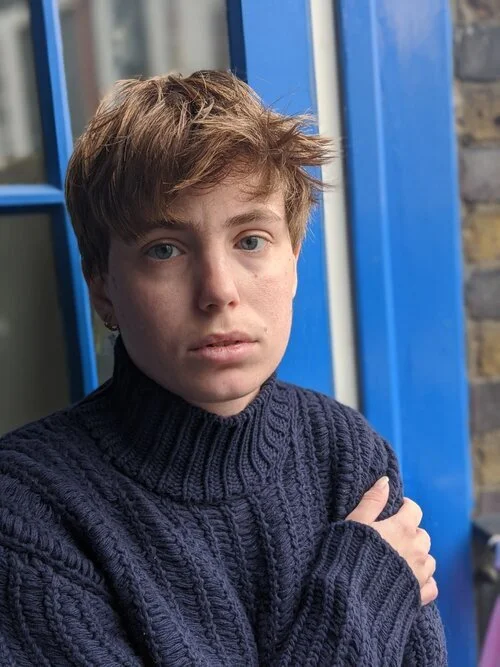Navigating “Female Healthcare” as a Male
Trigger Warning: Abuse
Having to choose between mental health and physical health is a no-win situation, and people prioritizing one over the other often do it due to the stigma around mental health.
One of the traumas I have been recently discussing in therapy is my bodily autonomy. As a CSA survivor, I have many issues around consent. And medical settings are one of those few places where I don’t feel safe.
I feel like a piece of meat, being examined. A lamb to the slaughter. The thought of having to see a doctor itself makes me dissociate for hours, sometimes days.
Almost every time, my concerns and my questions have been pushed away by the pressure on the doctors, the timing of the appointments, the anxiety that would not allow me to communicate.
And dysphoria adds a new layer to that. It is hard to feel pain in body parts I feel I’m not supposed to have. To take care of something I hate.
Many patients feel disrespected by doctors, but when it comes to sexual health there are lots of reasons why people, especially AFAB patients, might feel uncomfortable. Having to disclose someone’s sexual history can be incredibly traumatic. Being belittled, judged, embarrassed can affect someone’s ability to self-advocate.
Some doctors’ narrow approach to sexuality is also a huge issue.
When talking to my friends, lots of them had negative experience due to doctors assuming the gender of their partners.
Some of my lesbian friends did not know what to answer when asked if they were “virgins”, since they never had PIV sex. Some friends who had been sexually assaulted were shamed because they were “sexually active” at such a young age.
When it comes to transgender people, cis-heteronormativity in healthcare can be particularly damaging: the National Transgender Discrimination Survey shows that 19% respondents were refused care, 28% reported harassment, and 50% had to teach their medical providers about transgender health needs.
When patient disclose they are transgender, the chances of them experiencing discrimination increases.
48% of respondents at some point postponed medical care (both regular check-ups or necessary medical intervention) due to the fear of discrimination, and this percentage raises to 55% for transmasculine individuals.
At some point, I remember I needed to buy emergency contraception. I found the process really easy: I would insert my name online (which wouldn’t be disclosed to third parties), click the informed consent box and purchase the medication. I was living pay-check to pay-check and was struggling with my mental health. I paid the first time, checked the confirmation email for details on how to pick up the medication.
After a few minutes, I got an email saying the order had been cancelled. No further info.
The refund would take 2-3 days. I resubmitted the order.
A few minutes later, same email.
At this point, I started getting anxious. I had already spent £60, the equivalent of one, maybe two weeks of groceries.
I waited until the following day, placed a new order.
Same email, but I soon got a follow-up. The email stated I could not order the medication because I’m a man.
It then stated that to prove I’m transgender, I would have to provide a GRC (which I didn’t have), scan of my passport, letter from my doctor with details of my HRT (I wasn’t medically transitioning at the time).
What was supposed to be a simple anonymous process ended up being a paperwork nightmare.
I called my best friend panicking. This was almost two days after the “accident”. I considered my deadname, but I am not registered on the NHS with that one, so I was afraid it wouldn’t work.
I ended up taking the meds on the third, maybe fourth day. At that point, it was way less effective. I was £120 short on rent. I experienced side effects and bled for longer than two weeks and was in pain, but too scared to call my doctor. And it wasn’t just fear of being mis-gendered. What if I had done something wrong? What if anything I filled in on those documents was considered “lying”? Would I be in trouble?
The hormones made me even more paranoid and emotional: was I going to be arrested? Shamed?
And what if it didn’t work? What if I needed an abortion? Just a few days earlier, I would have felt more confident, but now even checking emails gave me panic attacks.
These fears didn’t disappear with my medical transition. Just a few days ago I had to be prescribed some antibiotics, and was asked about other medication I’m taking. I had to explain what “transgender” meant and when I said I was taking Testogel as HRT (Hormone Replacement Therapy) the nurse asked me “And you take testosterone for that?”
Even with awareness slowly increasing, most medical professionals are more familiar with transfeminine people than transmasculine patients. Especially in the UK, that’s what the media focus on when discussing healthcare and single sex spaces.
So what happens when I will need health checks? Will I have to explain bottom growth to my doctors? Will I have to discuss a hysterectomy? Will they ask the right questions when referring to my non-binary sexual partners?
Discrimination is an everyday occurrence in transgender lives. I cannot even recall all the times I’ve had to research health issues on my own and feed them back to my doctors. No one, even my specialist, was able to offer advice on genital hygiene, I am the only trans patient at the local clinic and I’m scared they would recommend the wrong type of birth control.
As stated before, mental health and physical health are much more linked than perceived. Mental health affects the care individuals can receive but also has effects on people’s bodies, and not being able to receive a proper diagnosis or experiencing trauma in medical settings makes it harder to access healthcare. This is also why surveys and policies prioritizing trans patients who are medically transitioning are skewed. I did not even mention how difficult access to gender related care and transition is. Or how race, income, biases against sex work and promiscuity further affect us.
Anti-transgender bias has catastrophic consequences, and we need informed and supportive medical professionals. Integrating transgender care and ending discrimination should be a public health priority and IS a medical emergency worldwide.
Written by Ramses Oliva
In addition to working 9-5, Ramses can't seem to stop writing, even if it means scribbling on a notebook overnight. He's a trans activist who loves talking about queer identities, diversity and art. He is co-host of the brand-new podcast "Punching the Wall" and you can find him posting overpriced selfies on Instagram at @queer.discart.









